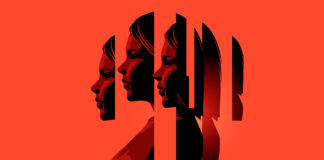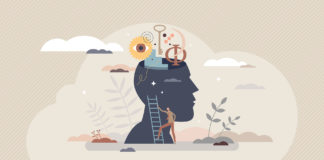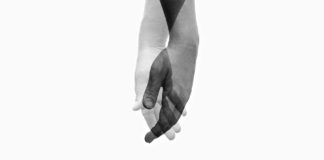Life really is beautiful
Graeme Frauenfelder, 56, didn’t realise until he was an adult that he was the victim of a mental health problem that affects 1.8 per cent of Australian males and 1.7 per cent of females. He’d assumed that his feelings were typical of any kid. But Graeme’s problem has a name. It’s bipolar disorder, which used to be called manic depression. Bipolar disorder is...
It’s about guilt
Mainstream culture has tried to airbrush guilt out of everyday life. It’s the ultimate social faux pas, it seems, to make someone feel guilty—How dare you judge me! Or maybe it’s the penultimate faux pas, because what’s even worse than making someone feel guilty inside is to shame them in front of others.
Facebook, the Metaverse and a falsely promised future
Facebook is dead! Long live Metaverse! So proclaimed Facebook CEO Mark Zuckerberg to thousands of followers who tuned in to a livestream last Friday announcing the company’s rebrand.
The need for control, between illusion and responsibility
As a child, I suffered because of the decisions the adults would make. At least, that's what I believed for a long time. It seemed unfair to me to not have veto power in the key moments that defined us as a family, and I was looking forward to the day when I would detach myself from the will of my elders.
Mindfulness: Little Red Riding Hood does not live in the present moment
"It was dark inside the wolf." Like a chef who reinterprets a traditional dish for an expensive urban restaurant, writer Margaret Atwood proposed to the students of her masterclass a reinterpretation of the story "Little Red Riding Hood", in line with the most current tastes and attention skills: a Little Red Riding Hood that lives in the present moment.
Is there a cure? The painful limitations of the fight against paedophilia
Little over a decade ago, a highly acclaimed British documentary filmmaker, Louis Theroux, stepped into the midst of 500 paedophiles admitted to the psychiatric hospital in Coalinga, California, trying to find out if the complex treatment the convicts had to go through was really working.
Pets: Our help for a better life
I've always liked pets, but from a distance. Raised by a mother convinced that animals cannot possibly live under the same roof as people, I adopted a similar opinion, which I kept for many years, even if a great number of people tried to prove me wrong.
The necessity of being wrong
Nobody likes to lose an argument. The feeling of being proven wrong is never a good one. At best, it might provide a slight dent to your ego or sense of self. At worst, it can be a thoroughly humiliating affair, or reveal that one of the foundations of your beliefs is invalid or misplaced. But no matter where it lands on the...
A cure for loneliness
At the age of 34, Joseph already has his own business, into which he has invested much of his soul and talent. He is a carpenter, and the personality of the pieces he carves, chisels, polishes, and paints with his hands stands out beautifully. With each order he sends to a customer, Joseph takes some time to send a handwritten thank-you note. On...
The lens you see me through
Ask any cinematographer what gets them excited, and I guarantee there’s a fair chance they’ll answer with “lenses”. Having spent many years studying film and many more practising it, I can safely say that I now understand why this is—and it’s probably the first response you’d hear from me if you asked me the same question.
More than just one thing
If you were asked to describe who you are, what would you highlight first?
A generation that breathes anxiety
“You are always afraid people will judge you or know your weakness. It’s like being totally naked in front of a huge crowd,” says Bruno Feldeisen about the hidden struggle he had with anxiety.
Realistic expectations, the secret of lasting relationships
Aside from fuelling jokes about how women impose unrealistic standards on men, or how men are just grown-up children who want their wives to be their mothers, the expectations couples place on their relationship define how they relate to each other, and influence marital satisfaction.
The dream that came true underwater
Our dreams must be stronger than the unfortunate circumstances in which we find ourselves.
Insomnia and God’s bird
Carolynn Yakush inherited her taste for the good life from her Czech grandparents, and her interest in faith from her mother and the Christian schools she went to. For many years, the desire for money and a life of luxury overshadowed her spiritual and religious concerns. One day, almost without thinking about it, she entered a church again, and was amazed at the...


























